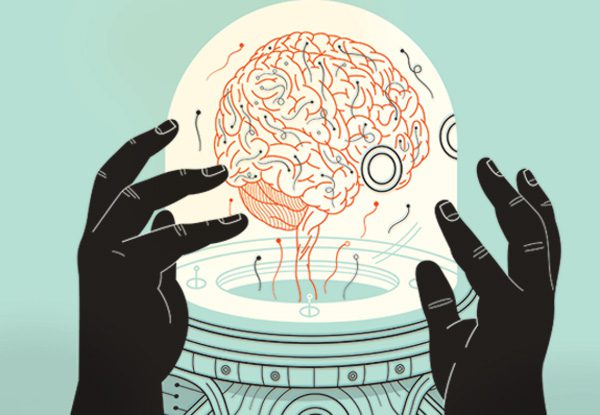Resonance
MIT-Harvard-IIT Initiative for Focused LearningResonance Course on Neuroscience, Summer 2013

Sanjiva Prasad
Professor of Computer Science, India Institute of Technology Delhi; Amar Nath and Shashi Khosla School of IT
Professor Prasad received his B Tech in Computer Science from IIT Kanpur in 1985 and his MS and PhD in Computer Science from SUNY, Stony Brook, USA in 1990 and 1991. His thesis, "Towards a symmetric integration of concurrent and functional programming" includes some of the early research in the design and semantics of higher-order concurrent programming languages with mobile code. He worked in the area of program verification at Odyssey Research Associates in Ithaca, USA from 1990-1992, and then at the European Computer-Industry Research Center (ECRC GmbH) in Munich, Germany from 1992-1994, where he worked on the Facile project based on his thesis work. From 1994 he has been at IIT Delhi, first as an assistant professor and then as an associate professor. In 1998-99, he was a visiting associate professor at BRICS, University of Aarhus, Denmark. His research interests are primarily in formal methods and programming languages -- in particular, semantics of concurrency, distributed and mobile computation, and verification of network protocols and architectures. Process algebraic approaches to systems biology are a recent interest. He has written several conference and journal papers, and has been an invited speaker at the first DART workshop at Aalborg, Denmark in 1993 and at the first HLCL workshop at the Newton Institute, Cambridge, UK in 1995. He is a member of the Indian Association for Research in Computer Science and the European Association for Theoretical Computer Science. He has also served on several international conference programme committees (FST TCS, POPL, Fossacs, ASIAN, SEFM, etc.), and as the programme co-chair of FST TCS 2000 and FST TCS 2007.
ProfileProfessor Prasad received his B Tech in Computer Science from IIT Kanpur in 1985 and his MS and PhD in Computer Science from SUNY, Stony Brook, USA in 1990 and 1991. His thesis, "Towards a symmetric integration of concurrent and functional programming" includes some of the early research in the design and semantics of higher-order concurrent programming languages with mobile code. He worked in the area of program verification at Odyssey Research Associates in Ithaca, USA from 1990-1992, and then at the European Computer-Industry Research Center (ECRC GmbH) in Munich, Germany from 1992-1994, where he worked on the Facile project based on his thesis work. From 1994 he has been at IIT Delhi, first as an assistant professor and then as an associate professor. In 1998-99, he was a visiting associate professor at BRICS, University of Aarhus, Denmark. His research interests are primarily in formal methods and programming languages -- in particular, semantics of concurrency, distributed and mobile computation, and verification of network protocols and architectures. Process algebraic approaches to systems biology are a recent interest. He has written several conference and journal papers, and has been an invited speaker at the first DART workshop at Aalborg, Denmark in 1993 and at the first HLCL workshop at the Newton Institute, Cambridge, UK in 1995. He is a member of the Indian Association for Research in Computer Science and the European Association for Theoretical Computer Science. He has also served on several international conference programme committees (FST TCS, POPL, Fossacs, ASIAN, SEFM, etc.), and as the programme co-chair of FST TCS 2000 and FST TCS 2007.

Ambuj D Sagar
Vipula and Mahesh Chaturvedi Professor of Policy Studies, Indian Institute of Technology Delhi
Prof. Sagar's interests broadly lie in science & technology policy, environmental policy, and development policy, with a particular focus on the interactions between technology and society. While his current research focuses mainly on energy innovation and climate policy, he also studies, more broadly, various facets of technology innovation, environmental politics and processes, and engineering education and research. His recent papers have dealt with energy innovation policy and strategies (in areas such as biofuels, clean cookstoves, coal-power, and automobiles and institutional mechanisms such as climate innovation centers), climate change policy, and capacity development for the environment. He currently is advising/interacting with various agencies of the Indian Government and several multilateral and bilateral organizations; while in the US, he worked with a range of private and public-sector organizations in the US (including as a staff researcher for a major study on energy R&D for the White House). He currently is a member of the Indian Government's Expert Committee on Low-Carbon Strategies for Inclusive Growth, the US-India Track-II Dialogue on Climate Change, as well as other advisory groups in the Indian Government.
ProfileProf. Sagar's interests broadly lie in science & technology policy, environmental policy, and development policy, with a particular focus on the interactions between technology and society. While his current research focuses mainly on energy innovation and climate policy, he also studies, more broadly, various facets of technology innovation, environmental politics and processes, and engineering education and research. His recent papers have dealt with energy innovation policy and strategies (in areas such as biofuels, clean cookstoves, coal-power, and automobiles and institutional mechanisms such as climate innovation centers), climate change policy, and capacity development for the environment. He currently is advising/interacting with various agencies of the Indian Government and several multilateral and bilateral organizations; while in the US, he worked with a range of private and public-sector organizations in the US (including as a staff researcher for a major study on energy R&D for the White House). He currently is a member of the Indian Government's Expert Committee on Low-Carbon Strategies for Inclusive Growth, the US-India Track-II Dialogue on Climate Change, as well as other advisory groups in the Indian Government.

Pawan Sinha
Professor of Vision and Computational Neuroscience, Brain & Cognitive Sciences, MIT
Profile
Venkatesh Murthy
Raymond Leo Erikson Life Sciences Professor of Molecular and Cellular Biology
Profile
